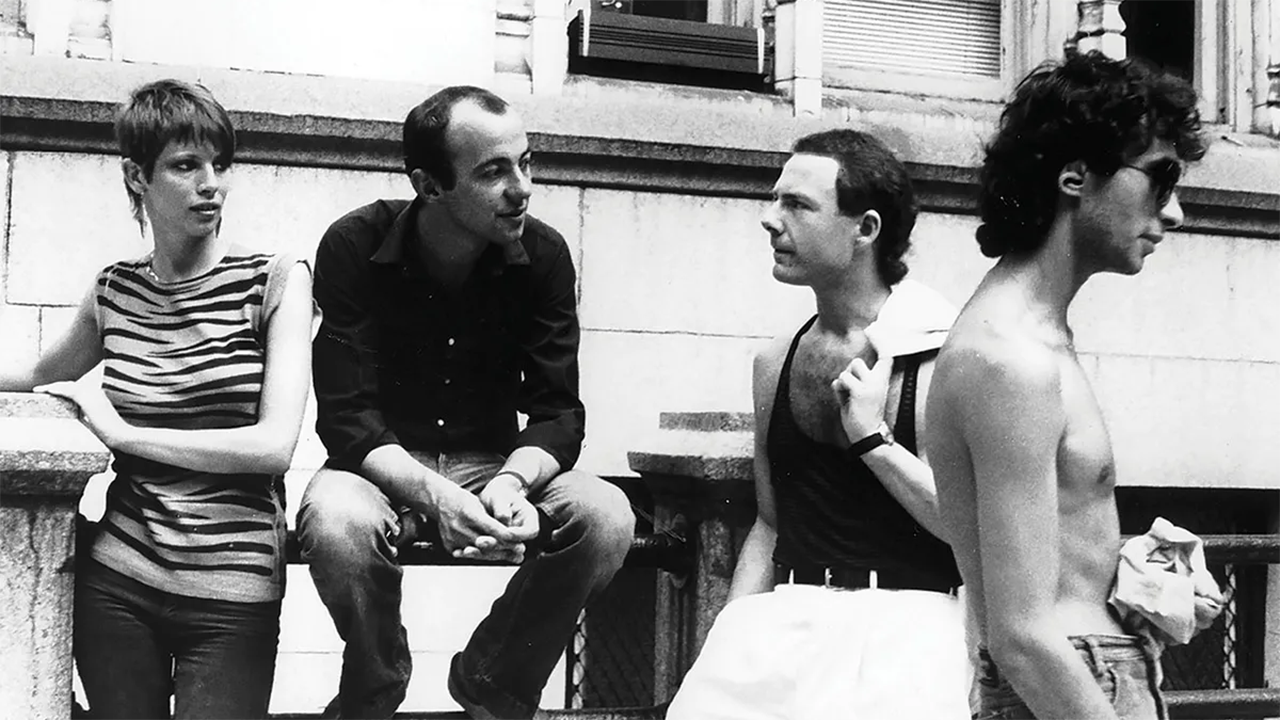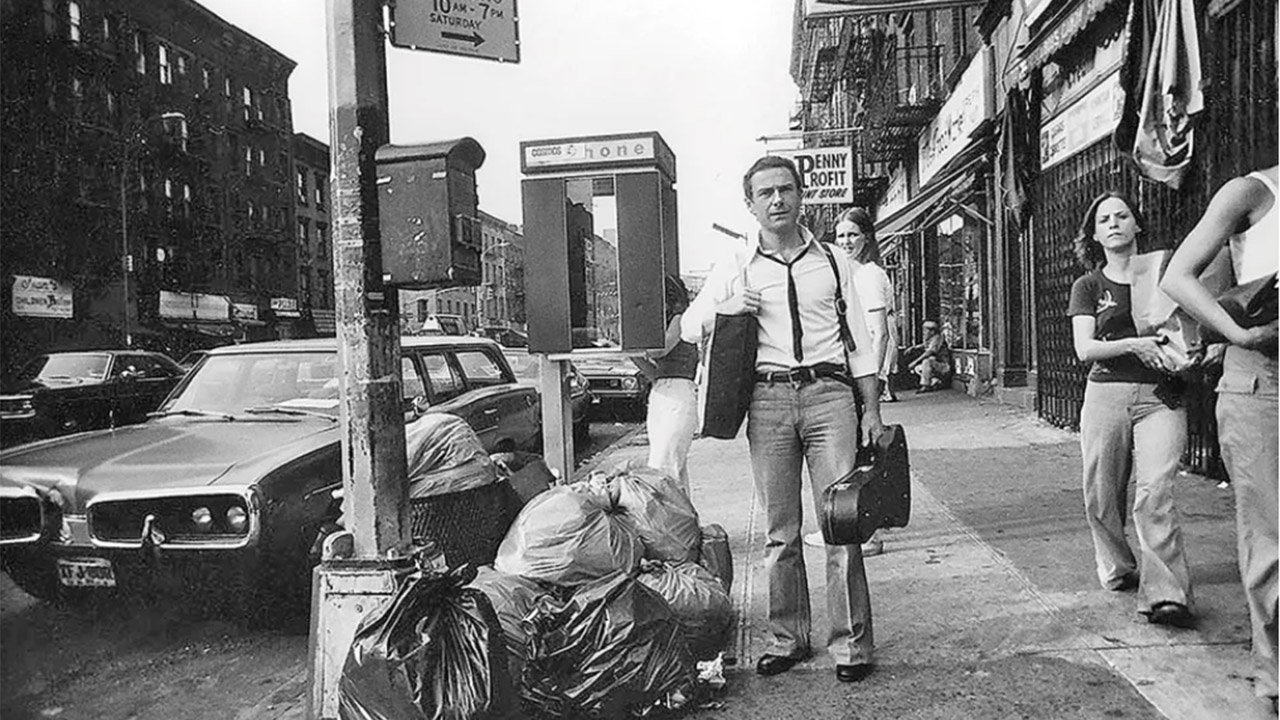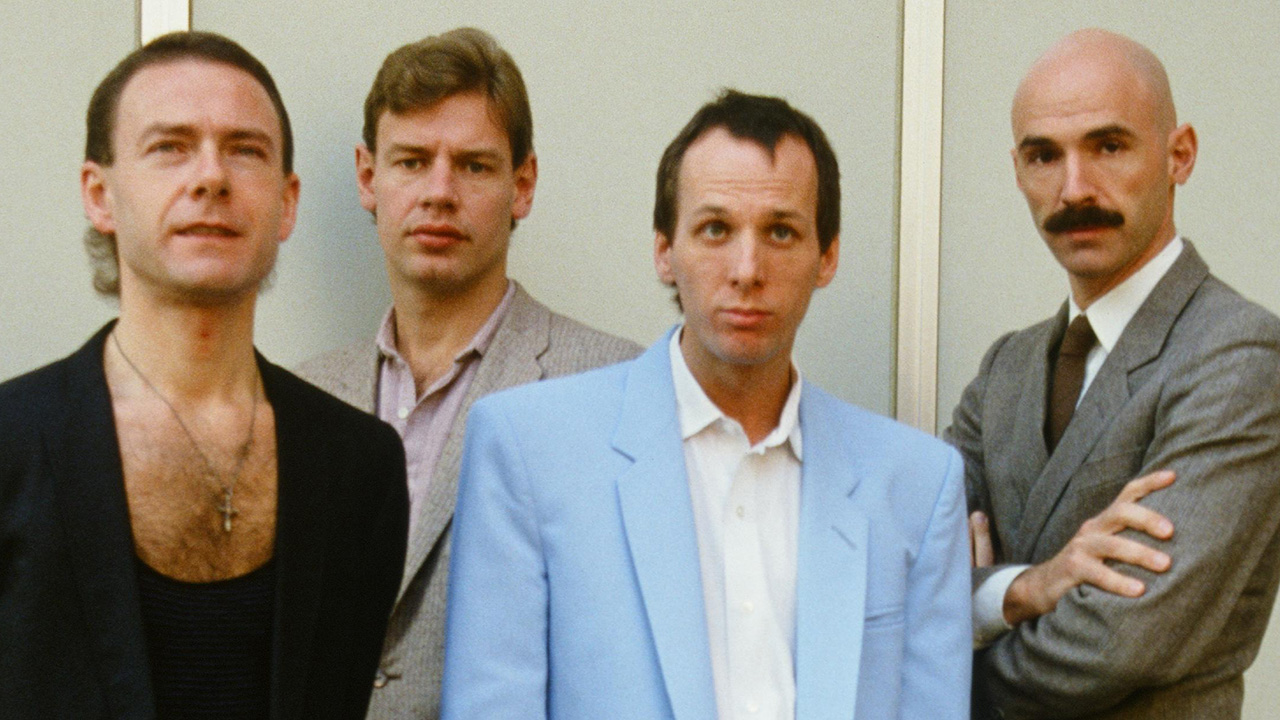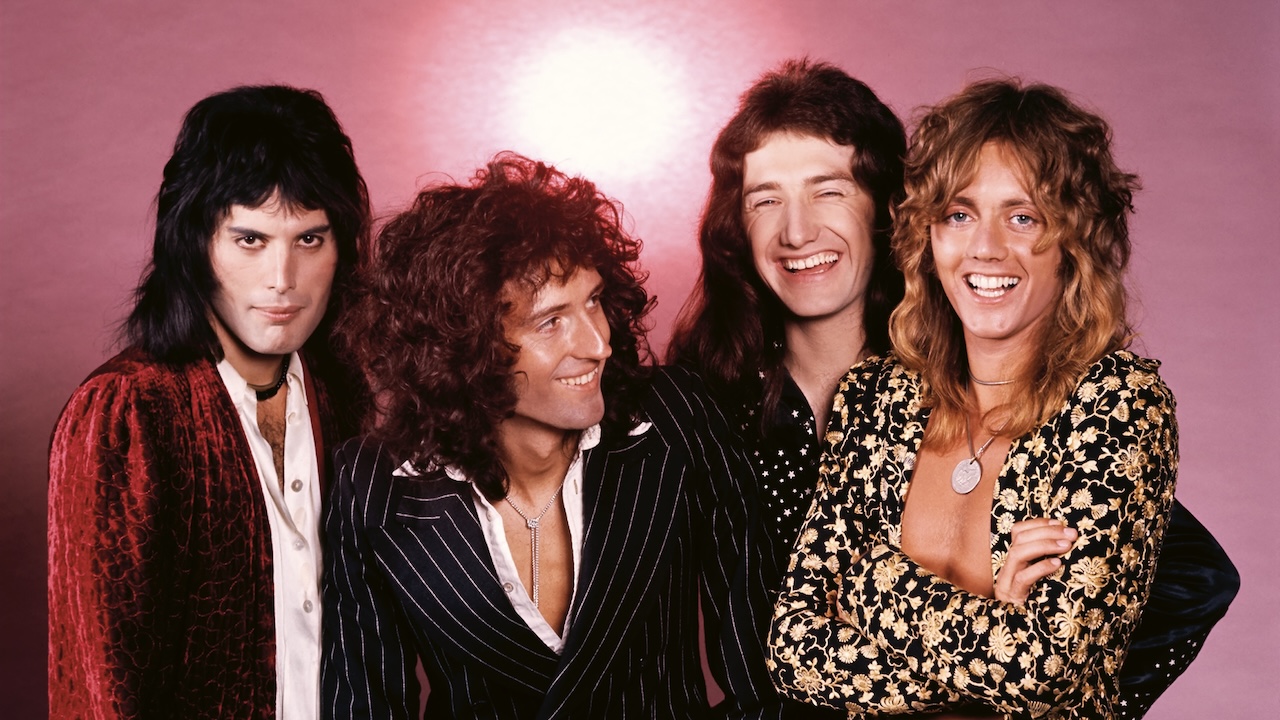“Robert Fripp said he wanted to revolutionise rock’n’roll with us. I wasn’t sure, given what I’d just heard. But they were about to throw us out the squat”: The League Of Gentlemen led to Beat-era King Crimson
The band lasted only seven months, and felt like a bad movie for some of those involved – but the musical experiment inspired Fripp to reform King Crimson for their 80s brilliance

Select the newsletters you’d like to receive. Then, add your email to sign up.
You are now subscribed
Your newsletter sign-up was successful
Want to add more newsletters?

Every Friday
Louder
Louder’s weekly newsletter is jam-packed with the team’s personal highlights from the last seven days, including features, breaking news, reviews and tons of juicy exclusives from the world of alternative music.

Every Friday
Classic Rock
The Classic Rock newsletter is an essential read for the discerning rock fan. Every week we bring you the news, reviews and the very best features and interviews from our extensive archive. Written by rock fans for rock fans.

Every Friday
Metal Hammer
For the last four decades Metal Hammer has been the world’s greatest metal magazine. Created by metalheads for metalheads, ‘Hammer takes you behind the scenes, closer to the action, and nearer to the bands that you love the most.

Every Friday
Prog
The Prog newsletter brings you the very best of Prog Magazine and our website, every Friday. We'll deliver you the very latest news from the Prog universe, informative features and archive material from Prog’s impressive vault.
Robert Fripp has shut down then brought back King Crimson on a number of occasions over the years. While many thought the band ended for good in 2021, the revelation that a new album is underway in 2025 suggests it might be happening again. In 2016 Prog explored one of the Fripp’s most notable reinventions – the formation of The League Of Gentlemen, which resulted in Crimson’s remarkable Beat era of the 80s.
It’s May 1980. Ex-King Crimson guitarist Robert Fripp, ex-XTC organist Barry Andrews, bassist Sara Lee and drummer Johnny Toobad, collectively known as The League Of Gentlemen, have finished performing as what Fripp calls a “new wave instrumental dance band.”
Playing small clubs with tiny dressing rooms, as they have been, means venues crowded with well-wishers, those in search of a good time and – with a grim regularity – men cornering Fripp to engage him in fervent discussions of philosophical issues.
Drawn, perhaps, as a result of Fripp’s very public abdication from King Crimson in 1974 in order to go on a spiritual sabbatical, Andrews recalls a typical scenario of many such aftershows: “There were a lot of boring fuckers in the dressing room; all very earnest, geeky blokes. It even got to Robert – who was single at the time and up for some action – that instead of basking in the oestro-waves of well-deserved post-show girly adulation, he was being cornered by yet another sweaty bloke asking for some spiritual or musical guidance.
“Johnny said that if Fripp wanted to get rid of these ‘seekers after knowledge,’ he could try pretending to sell them heroin. Gamely, Robert did exactly that – but his performance as a drug dealer was less than convincing: ‘Would you like to buy some smack? It’s really good stuff!’ But it certainly did the trick.”

Any account of Fripp’s route from retirement in 1974 to the re-emergence of a new incarnation of Crimson in 1981 will usually include a couple of notable stopovers. His cautious return to the music industry included supplying the soaring guitar line on the title track of David Bowie’s “Heroes” in 1977.
That year he went back on the road as part of Peter Gabriel’s touring band, under the pseudonym Dusty Rhodes, performing behind a curtain. With a producer’s credit on Gabriel’s second album and Daryl Hall’s Sacred Songs, he relocated to New York’s Hell’s Kitchen, which resulted in appearances with Blondie and others on the emergent new wave scene.
Sign up below to get the latest from Prog, plus exclusive special offers, direct to your inbox!
Very much relishing the role of an Englishman in New York, in 1978 he launched a personal manifesto that mapped out his career for the next few years. Entitled The Drive To 1981, it was, he says: “a campaign on three levels. Firstly in the marketplace, but not governed by the values of the marketplace; secondly, as a means of examining and presenting a number of ideas which are close to my heart; thirdly, as a personal discipline.”
The ‘number of ideas’ close to his heart included his first solo album, Exposure (1979). This was followed by God Save The Queen/Under Heavy Manners (1980), and, perhaps most significantly in the context of what was to come next, The League Of Gentlemen, formed in March 1980.
When considering the reformation of King Crimson in 1981, the importance of The League – as they were known – is often overlooked. It’s not hard to understand why, in a way. Their short, four-to-the-floor instrumental tracks, with titles like Inductive Resonance, Dislocated, Thrang Thrang Gozinbulx and Ooh! Mister Fripp contained skewed, quirky melodies, animated with a punkish pace. In their live sets, with about an hour’s worth of material, those strange riffs were combined with Fripp’s extraordinary out-there signature guitar, forming a piledriving avant-pop – dance music with a generous twist of dissonance.
With “an emphasis on spirit rather than competence,” as Fripp succinctly put it, The League Of Gentlemen toured the clubs and colleges of Europe, Canada and the United States for seven months, totting up a total of 77 shows. They seemed about as far removed from virtuosic ruminations of Crimson as it was possible to get. Their one and only album, self-titled and posthumously released, didn’t adequately convey the band’s dance-orientated velocity. Yet The League were the testing ground for much of the musical vocabulary that Fripp would come to refine on 1981’s Discipline.
Andrews doesn’t recall too much about his first encounter with Fripp during the making of Exposure – his attention was diverted elsewhere. “I mainly remember Peter Hammill, being next to overdub after me, necking half a bottle of brandy before going in the vocal booth. He said it was to ‘silence the conscious/critical part of my mind,’ or words to that effect. I thought that sounded like a rationale that might be useful to me in the future.”
Andrews next heard from Fripp, residing once again in London, when the guitarist pushed a note under the door of “a squalid squat” in Kings Cross, containing an invitation to form a band. “I must say, I rather liked the idea of him doing that in his nice suit!” With Lee and Toobad recruited from punk outfit Baby And The Black Spots, they had what to Andrews felt like a less than promising first rehearsal. Adjourning to the pub after a few numbers, Andrews recalled Fripp was in a sanguine mood.
“Robert said he wanted to revolutionise rock’n’roll with the people around this table. I wasn’t too sure if it was going to be possible, given what I’d just heard. But hey, it meant going to stay in a guest house in Dorset, and they were about to throw us out of the squat.”
We were cast in Robert’s movie: ‘He was a 70s guitar hero, they were a bunch of North London chancers. Now they have to go on the road…’
Barry Andrews
With Andrews’ frenetic keyboards acting as the glue between Fripp and the rhythm section, he was content to let the guitarist direct proceedings. “I think the fatal flaw in the League Of Gentlemen was that it was put together around Robert’s musical proclivities, and me and The Toobads, as they were known, were cast as though in Robert’s movie. ‘He was a 70s guitar hero, they were a bunch of North London chancers. Now they have to go on the road…’ We were encouraged to pretend it was a real band. I didn’t really see the point of that. Robert was the guitar star, we were his backing band. What was the problem?”
If there was a problem, it was that Fripp was actively considering a return to what he termed ‘first division’ music making. In his model there existed three divisions. His solo Frippertronics basked in the third, and concerned research and development; representing, he said, “interesting ideas and civilised lifestyle, but you won’t earn a living.” Above that was the second division, which ”“will earn you a living if you graft, and you can get professionally respectable, but you won’t change the world.”

During its tenure, The League hovered precariously between the two. Several pieces in their repertoire bristled with the sizzling, cyclical guitar music Fripp was itching to take further. Within the heat of a gig, it was common for them to hurtle from dissonant and explosive energies down to simplistic and ethereal moods. Their ability to reconcile those contrasting elements had a blunt, unrefined efficiency. Though sometimes lacking subtlety, the exchange of time signatures while melodic heavy lifting alternated between the front and back of the group, was crucial to the development of Fripp’s next step.
As they undertook a final string of UK dates in November 1980, he was by now contemplating a return to that first division, and with it, access to the best musicians, better budgets and a much wider audience. When The League Of Gentlemen played their final show at the London School Of Economics on November 29, Andrews sensed the band had run its course.
He said he was sick of ‘playing with people who are drunk.’ Fair enough, actually. And a bit of a relief all round
Barry Andrews
“I think I was feeling more like part of some kind of Gurdjieffian social experiment gone wrong – and kinda patronised, if I’m honest. We’d got together to do some tunes and bring them back to Robert, in a half-baked attempt to try to be more than lab rats. When I rang Robert to tell him, he said, ‘I’m putting the band on hold.’ One of his reasons was that he was sick of ‘playing with people who are drunk.’ That was us told. Fair enough, actually. And a bit of a relief all round.”
Although wary of returning to the madness of the music business that had caused him to quit in 1974, Fripp was ready to do so – but this time under his own terms. He noted: “You’re on a tightrope. Either way, you have to jump. If you fall, you lose your health, sanity and occasionally your soul. But you just might fly away. So there’s your choice.”
The drive to 1981, now completed, had taken him to his final destination: Beat-era King Crimson.
Sid's feature articles and reviews have appeared in numerous publications including Prog, Classic Rock, Record Collector, Q, Mojo and Uncut. A full-time freelance writer with hundreds of sleevenotes and essays for both indie and major record labels to his credit, his book, In The Court Of King Crimson, an acclaimed biography of King Crimson, was substantially revised and expanded in 2019 to coincide with the band’s 50th Anniversary. Alongside appearances on radio and TV, he has lectured on jazz and progressive music in the UK and Europe.
A resident of Whitley Bay in north-east England, he spends far too much time posting photographs of LPs he's listening to on Twitter and Facebook.
You must confirm your public display name before commenting
Please logout and then login again, you will then be prompted to enter your display name.

